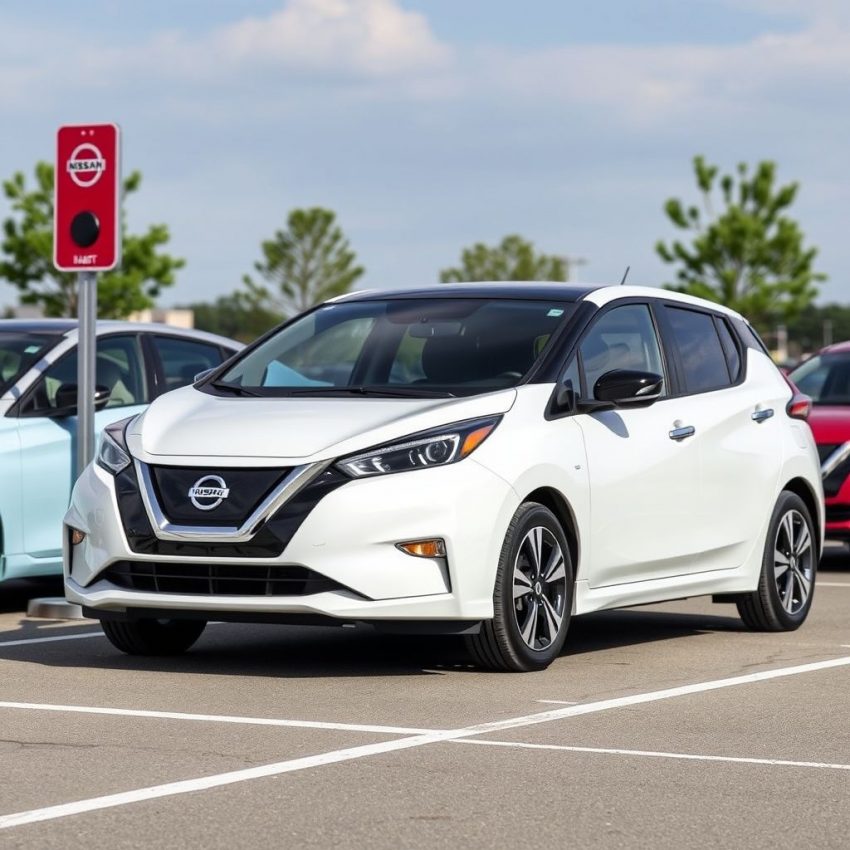Can Nissan Navigate Trump's Tariffs and Make its EVs Great Again?
The auto industry is in a state of constant evolution, and Nissan, like other manufacturers, faces the challenge of navigating a complex landscape of shifting trade policies and the accelerating demand for electric vehicles (EVs). This challenge was particularly pronounced during the Trump administration, which implemented tariffs that impacted global supply chains and created uncertainty for automakers. So how is Nissan hoping to steer through these choppy waters and electrify its future?
The Tariff Tightrope:
Former President Trump's tariffs on imported steel and aluminum, along with threats of tariffs on imported cars and parts, created a significant headache for Nissan. The company, with manufacturing plants in the US and globally, relies on intricate supply chains that were disrupted by these policies. Nissan, like other automakers, had to absorb increased costs or pass them onto consumers, potentially dampening sales. This balancing act continues to be a challenge, though the Biden administration has taken a different approach to trade.
Electrifying the Future, Despite the Headwinds:
Despite the tariff challenges, Nissan has remained committed to its EV program, recognizing the growing global demand for sustainable transportation. The Nissan LEAF has been a pioneer in the affordable EV market, but the company recognizes the need to expand its EV offerings and compete with a growing field of competitors. Nissan's Ariya, an all-electric crossover SUV, represents a significant step in this direction, aiming to offer a more premium and technologically advanced EV option.
Strategies for Success:
Nissan is pursuing several strategies to navigate the changing landscape:
- Localization of Production: One way to mitigate the impact of tariffs is to increase local production. Manufacturing more vehicles and components in the US could reduce reliance on imported parts and lessen the impact of trade disputes.
- Focus on Innovation: Investing in research and development is critical for staying competitive in the EV market. This includes advancements in battery technology, charging infrastructure, and autonomous driving capabilities.
- Strategic Partnerships: Collaborating with other companies can help share costs and expertise. Nissan's alliance with Renault and Mitsubishi provides opportunities for joint development and platform sharing, potentially streamlining production and reducing costs.
- Advocacy for Fair Trade: Engaging in constructive dialogue with policymakers is essential to advocate for trade policies that support the auto industry and encourage investment in innovation.
The Road Ahead:
The path forward for Nissan is not without its bumps. While the tariff landscape has shifted since the Trump era, the global chip shortage, supply chain disruptions, and rising material costs continue to present challenges. However, by focusing on localization, innovation, and strategic partnerships, Nissan is positioning itself to compete in the rapidly evolving EV market.
The success of Nissan's strategy will depend on several factors, including consumer demand for EVs, government policies supporting sustainable transportation, and the company's ability to execute its plans effectively. Only time will tell if Nissan can truly "make its EVs great again," but the company appears committed to navigating the challenges and embracing the electric future.
What are your thoughts on Nissan's EV strategy? Share your comments below!
Don’t miss out on this exclusive deal, specially curated for our readers! Discover Affordable Flights Tailored to Your Travel Plans!
This page includes affiliate links. If you make a qualifying purchase through these links, I may earn a commission at no extra cost to you. For more details, please refer to the disclaimer page. disclaimer page.

